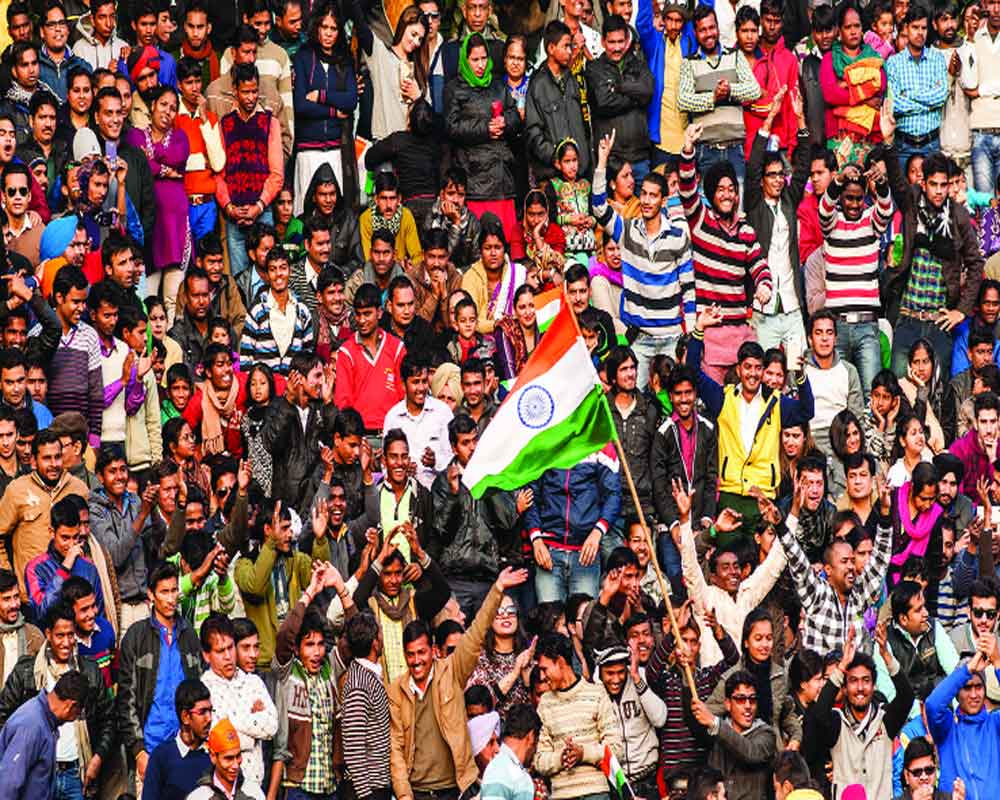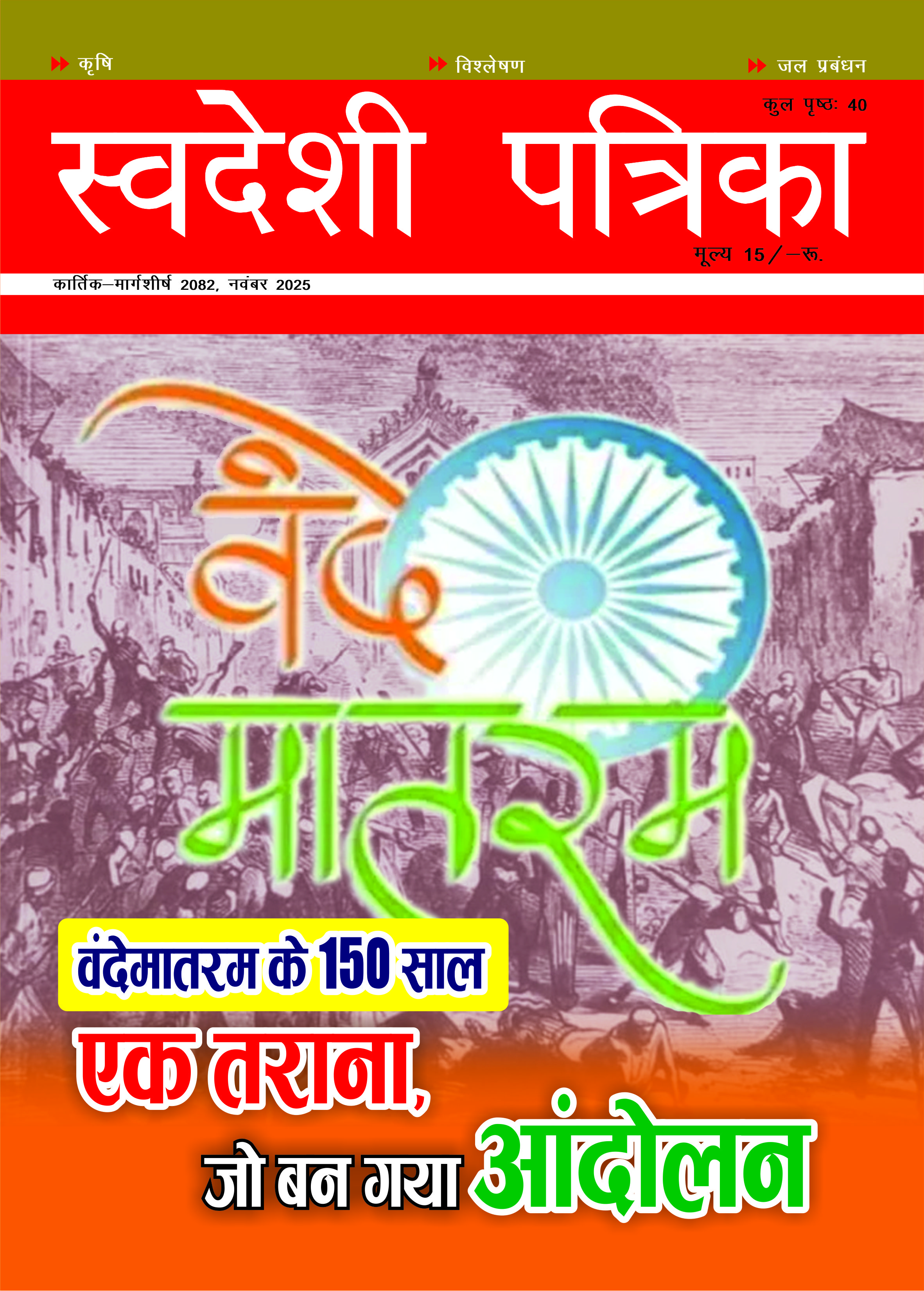
False Narrative of North-South Divide
From north to south, from east to west India is one. All the people living in this sub-continent consider themselves to be Indians with diverse religions, castes, languages, regions, dress and food. Vishnu Purana states: 'Uttaram Yat Samudrasya Himadreshchaiva Dakshinam. Varsham Tad Bharatam Naam Bharati Yatra Santatih.' Its meaning is; The land situated north of the sea and south of the Himalayas is called the land of Bharat and the people living on this sacred land of India are called Bhartiya. It is true that different regions in India were ruled by different rulers at different times. But an unbreakable bond remained between all the people living throughout India. Our Jyotirlingas, pilgrimages and Dhamas, situated in different parts of the country are witness to the fact that all the Indians have been considering the entire nation as their Rashtra, and linguistic, regional, food and other diversities have never been any hindrance to the same. But it is a matter of regret that during the foreign rule, such literature was published by the British government and false narratives were deliberately created by way of history writing, which poisoned the minds of the people of South India against the people of North India. False history was created that, Aryans came from foreign countries and the Dravidian people hurt by their brutal invasion and were forced to move towards the south. In such a situation, hostility towards the Hindi language was promoted in the southern states, more violently in Tamil Nadu. It is said that this false story was started by a German orientalist and philologist. Today there is abundant scientific evidence which proves that the Aryan invasion theory is a complete myth. This is imaginary; and based on unscientific principles. According to recently published research papers by researchers from India, US and other countries. based on the evidence of scientific facts of the Harappan period, it can be said that there has never been such a large-scale migration of Aryans from Central Asia. Apart from this, many historians have also worked to expose this false narrative.
Recently, a US magazine named The Economist has tried to create new definitions of division between North and South through in a very mischievous article. The magazine tries to make a case that South Indian states are class apart, as just 20 percent of India's population lives in five southern states of Andhra Pradesh, Karnataka, Kerala, Tamil Nadu and Telangana, but these states receive 35 percent of the total foreign investment coming into the country. These states have developed more than other parts of the country and whereas in 1993 these states generated 24 percent of the country's GDP, it has now increased to 31 percent. Having said all this, the magazine mischievously links the issue to politics and says that the ruling Bharatiya Janata Party lacks strong base in the southern states. The magazine also argues that therefore it can be said that the present government does not have the mandate of the entire country. It is noteworthy that in the country where The Economist magazine is published, no Prime Minister has ever received the similar mandate from the entire country in the elections. Does that mean that Prime Minister lacks of mandate of entire country? In the history of democracy across the world, there are very few examples of a government being formed after receiving majority votes from all regions equally. Similarly, some political leaders from south India are also promoting their separatist politics by putting forward similar arguments. We know that the development of many states was hampered due to some corrupt and incompetent leaders in the country, which included Southern states also. Many states of the North-East have been victims of neglect by the former central government. But many states such as Jammu and Kashmir continued to receive resources far in proportion to their population.
We also have to understand that development of all our states can happen only through mutual cooperation with each other. As far as development is concerned, among the ten states and union territories with the highest per capita income in the country, only two are from the South and that too at fifth and sixth position, and that too due to IT sector, where people from all parts of India are working. While the northern states have a significant contribution in providing food grains in our country, similarly the contribution of the southern states in providing industrial production, especially electronic and IT products, cannot be underestimated. In this way, India is like a family and all the states are its members. No one is big or small in the family; There is no consideration of rich or poor, everyone works together and makes our integral family, that is Bharat, prosperous. Moreover, we are the believers of the 'Vasudhev Kutumbkam' that is, whole universe is a family.
People with political motives have now given a yet another dimension to North-South divide, by raising the issue of so called unfair devolution of tax money to the southern states. Karnataka Congress leaders, including Chief Minister Siddaramaiah, staged a protest, saying that southern states were deprived of their legitimate share from central taxes. It's notable that the tax share is decided based on recommendations from the Finance Commission. Moreover, share of Andhra Pradesh, Tamil Nadu and Kerala in total devolution of central taxes remained more or less the same in the 15th Finance Commission recommendations as compared to previous ones.However, the share of Karnataka came down to 3.64 per cent from 4.71 per cent and Kerala to 1.92 per cent from 2.5 per cent over these periods. Therefore, data doesn't in way prove the alleged bias by Finance Commission. We must understand that on the issues of national integration and regional harmony, we should avoid such utterances, amounting to separatism, as the same can go a long way impacting national integration and well-being of our nation. Separatist voices are needed to be curbed and international agencies and media indulging in separatist agendas, must be dealt with sternly.


